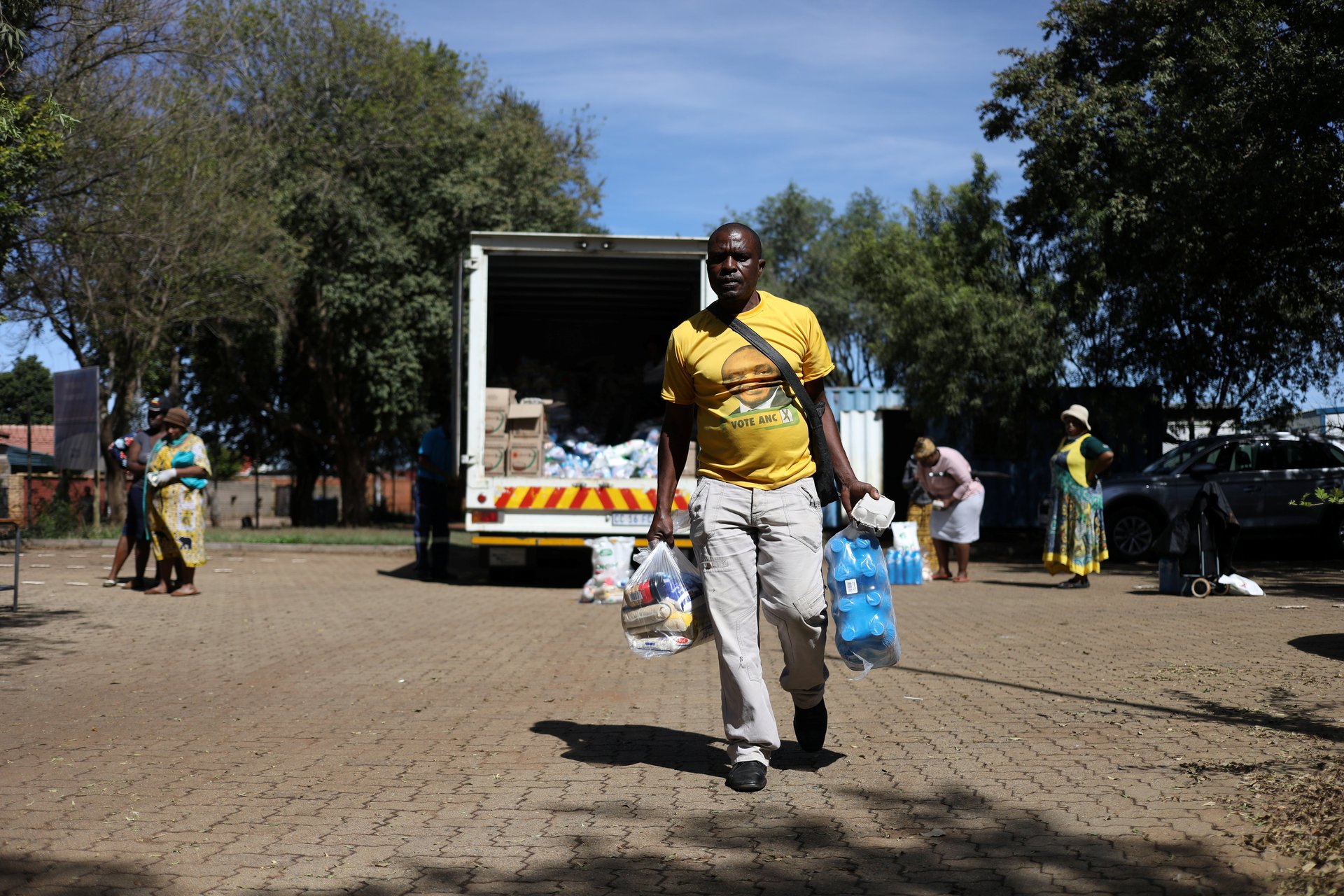African governments are being forced to develop social welfare programs in an economic crisis
One inadvertent effect of the Covid-19 pandemic and subsequent economic downturn across Africa has been the harsh spotlight on shortcomings of social safety nets across the continent.


One inadvertent effect of the Covid-19 pandemic and subsequent economic downturn across Africa has been the harsh spotlight on shortcomings of social safety nets across the continent.
In addition to boosting public health systems and infrastructure, African governments have also been faced with the task of providing economic relief for the citizens worst affected: the millions of low-income households and informal economy workers who depend on daily earnings.
Collectively, social and economic relief measures undertaken by African governments amid the pandemic will reach more than 175 million people, according to estimates by Development Reimagined, an international development consultancy.
Cash transfers—sending money to recipient persons or households—are the most common social relief method with 33 countries on the continent using the measure to send cash relief to, at least, 117 million people during the pandemic. For its part, South Africa’s cash relief program, part of its $26 billion special coronavirus budget, is likely “the furthest reaching” on the continent, Development Reimagined says.
That reality is down to, not just the amount of dispersed cash, but also South Africa’s existing social welfare infrastructure with around 30% of its population already receiving monthly cash transfers before the pandemic. In contrast, Togo had to build its recently introduced digital mobile cash transfer program from scratch amid the viral outbreak.
In terms of the share of population reached, Botswana’s relief package, comprising of food distribution schemes, a wage subsidy for businesses and prize freezes on essential items, is expected to have the widest impact.
As government policymakers, multilateral institutions and global NGOs focus on reducing poverty and inequality in low-income countries, many of which are in Sub-Saharan Africa, more attention has been paid to programs like universal basic income.
The idea of universal basic income has gathered support in recent years to give all residents of a country an unconditional cash payment instead of tax benefits, grants, or other social-service program support. Even former US president Barack Obama has suggested it is worthy of consideration for African countries. “It’s not just money that a job provides,” Obama said in 2018’s Mandela lecture. “It provides dignity and structure and a sense of place and a sense of purpose. So we’re gonna have to consider new ways of thinking about these problems, like a universal income.”
Cash transfers have been more targeted in Gambia with stipends for new mothers while Seychelles particularly targets people who have lost their income amid the pandemic. But cash transfers are not the only way governments are reaching and helping citizens. In Burkina Faso, Chad and Niger, food distribution to vulnerable people and utility bill freezes have been implemented while Mali’s program also includes food distributed to quarantined households.
In some cases however, these measures are simply not enough given the scale of poverty and existing welfare gaps. In Nigeria, where 95.9 million people live in extreme poverty, the government provided cash relief to only 3.6 million poor households during its month-long lockdown, forcing private citizens to plug gaps through food banks and donation drives.
Sign up to the Quartz Africa Weekly Brief here for news and analysis on African business, tech and innovation in your inbox